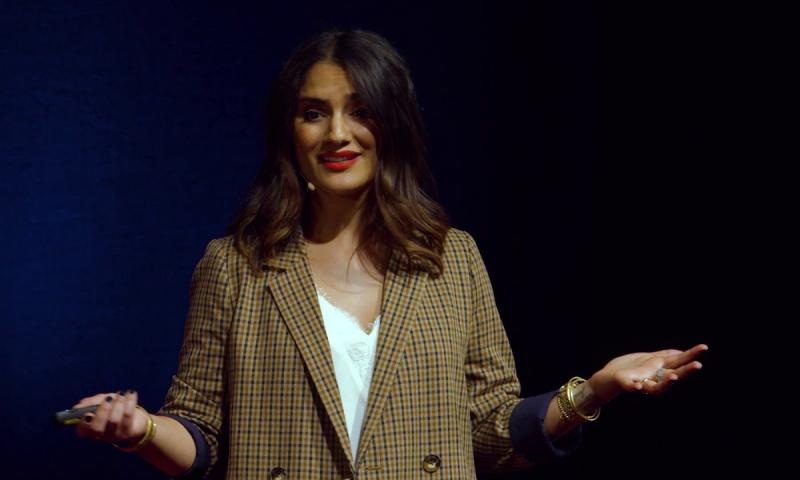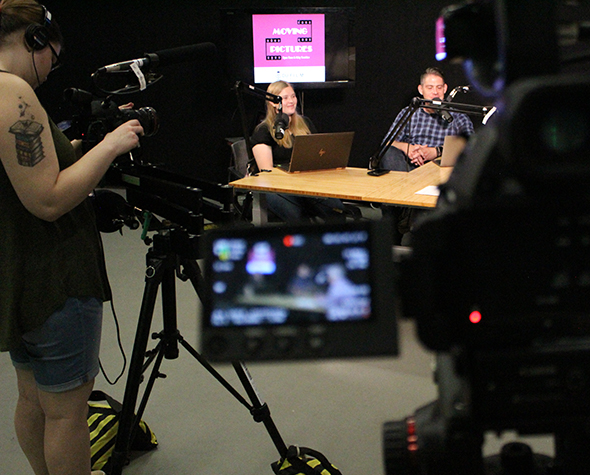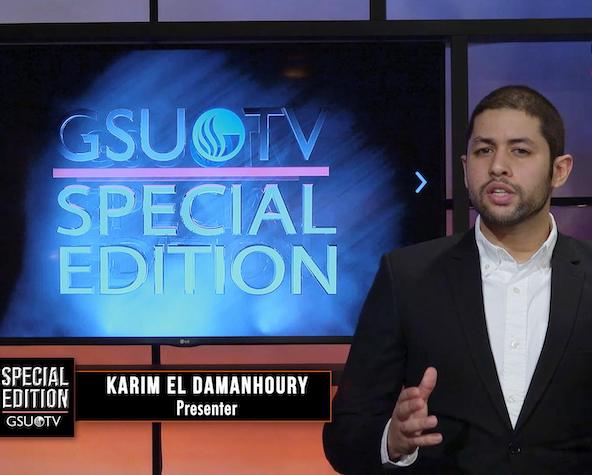DU Alumna Builds Communities of Support through Technology

Samira Rajabi presenting at TEDxBoulder in 2019.
"I wanted whatever I did in my career to do the most good with the least negative global impact. IIC seemed like it could teach me that."
Samira Rajabi graduated from the University of Denver's master's in International and Intercultural Communication program in 2010. From there she went on to earn a PhD in media research and practice at the University of Colorado Boulder, where she now teaches in their new College of Media, Communication & Information.
Samira says she chose the IIC program because of the faculty and their research. She says, "I was absolutely certain that a bridge between the Korbel School and the Mass Comm school [now MFJS] would enable me to understand what I was seeing in the world in new and compelling ways."
It was Margie Thompson, current professor and former director of the IIC program, that cemented Samira's decision: "Her work was compelling, timely and public facing. It changed the way I see the world and made me the scholar and person I am."
Samira's favorite thing about the IIC program was the people and the friendships she made during her time as a graduate student, though she also loved the opportunities to study abroad in Costa Rica and East Africa with faculty and fellow students.
"I built deep connections with some amazing women as we pored over new knowledge," she remembers. "I was able to forge deep connections with other students and faculty. Further, the trip I took to East Africa changed my outlook on aid work, development and so much more."
It was her time in the IIC program that ultimately led Samira to start researching media and technology. She says that, "Around the world, and in particular parts of East Africa that I eventually visited, women were being empowered to face trauma in quiet and private ways with technology.... It struck a chord with me."
She goes on to describe a difficult time in her own life, saying: "Later, when I was diagnosed with a brain tumor while getting my PhD, I realized that communities of support can form through technology and I realized that in order to deploy this tech effectively we needed, as scholars and practitioners, to both take advantage of digital affordances and understand how communities are doing the same."
Now Samira is the Director of Technology Influenced Pedagogy at the University of Colorado Boulder's College of Media, Communication & Information, where she helps students, faculty and staff use technology in the classroom more effectively and helps "foster understandings of the implications of that technology." She also teaches in the Department of Media Studies.
Samira still credits the IIC program for where she is, saying, "It taught me how to think. It taught me how to be open to the world, but also to have a critical lens to push structural and social dynamics to change for the better."
When asked if she has any advice for current students in the International & Intercultural Communication program and elsewhere, Samira says to explore ways to research outside of the coursework.
"Reach beyond the walls of the academy, do great research and then share that research with the community. Show communities how the work you do can be mutually beneficial and make sure your work is never extracting knowledge without sharing its benefits."
She also has a message for students that is often overlooked in the classroom: "It's okay to be human." She clarifies to say, "It's okay not to always know the answer, to find yourself confronted by the answers you find or to need support in searching for your career, knowledge or whatever it is you're looking for."
"Give yourself compassion. This will in turn allow you to give that compassion to the people you serve in your various communities."





